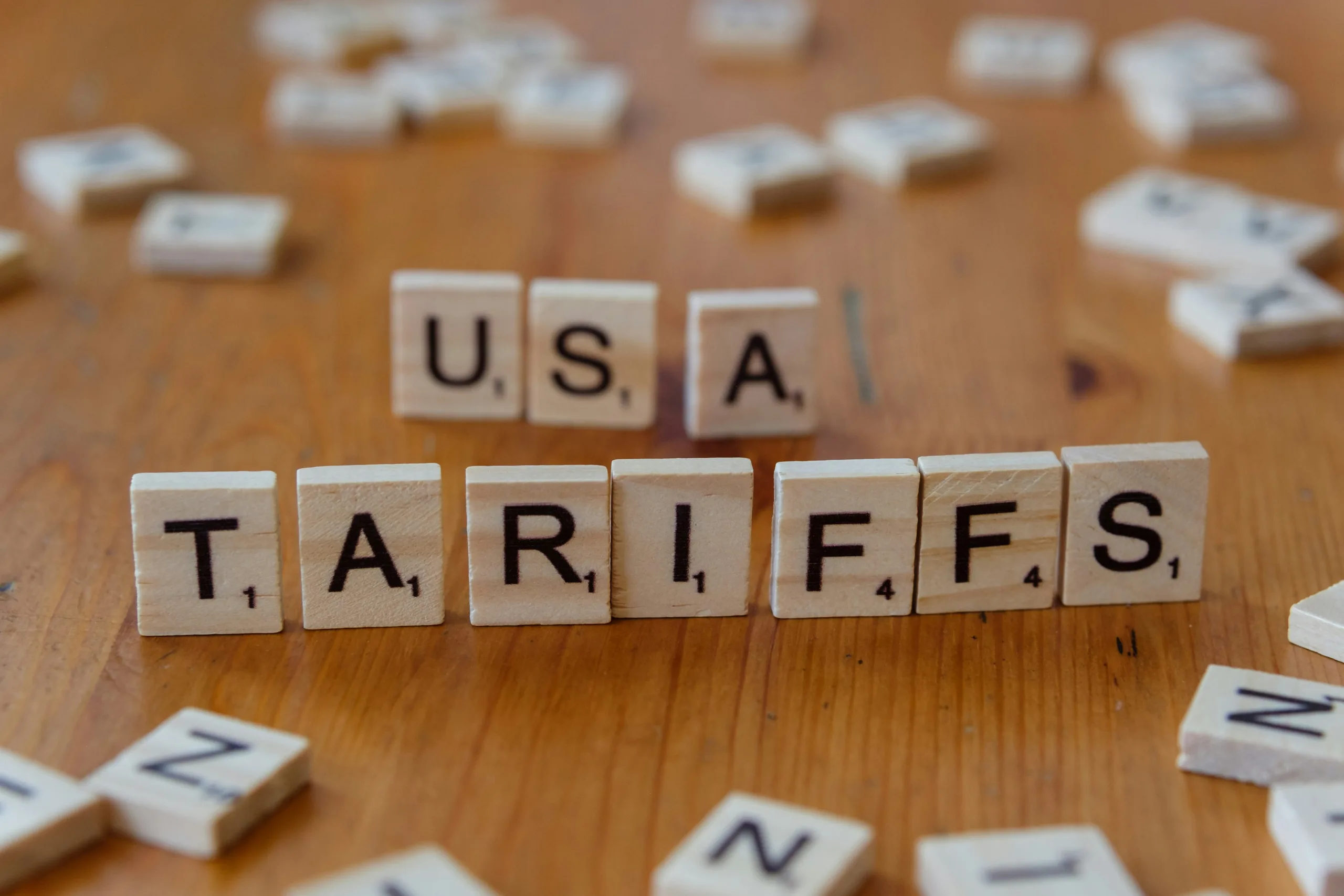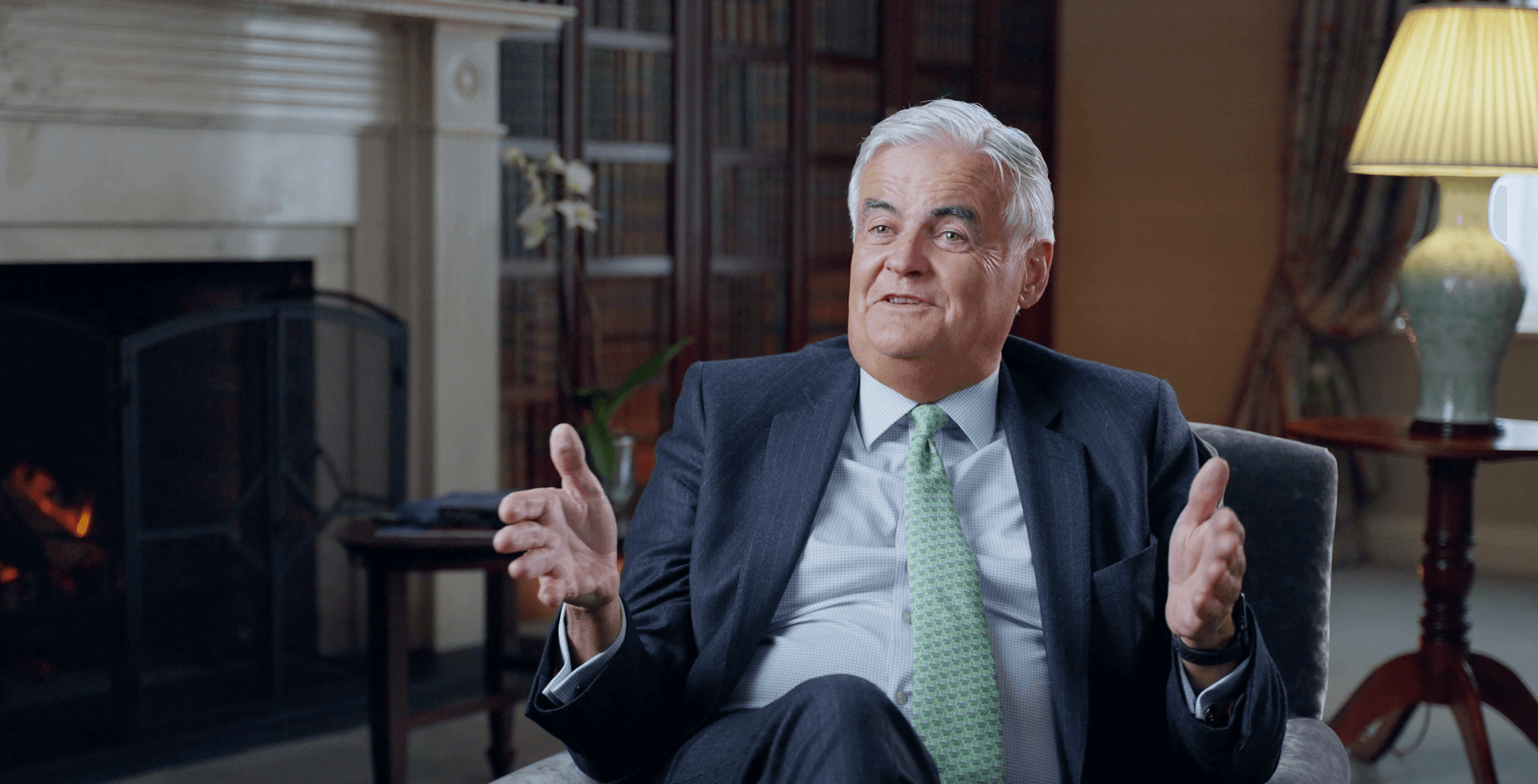U.S. President Donald Trump recently unveiled a broad new tariff policy that, if enacted, will introduce a 20% tariff on European imports – including key Irish exports – set to take effect today, April 2, 2025. This move, part of a broader effort to reduce trade imbalances, has sparked concern among investors, businesses, and policymakers alike.
For Irish investors, understanding how these tariffs, if imposed, might influence markets and economic conditions is essential. While short-term volatility is inevitable, a long-term investment strategy remains the most effective approach to weathering such economic shifts. Below, we explore the potential impacts and provide strategies for maintaining financial stability in uncertain times.
Short-Term Market Volatility and Investor Sentiment
Market reactions to tariff announcements tend to be swift and pronounced. Uncertainty surrounding trade policies often leads to increased volatility, particularly in sectors most affected by the new tariffs. Stocks of Irish companies with significant exports to the U.S., such as those in the pharmaceutical, food and beverage, and technology sectors, may experience short-term fluctuations as investors reassess their growth prospects.
However, volatility does not necessarily mean long-term value destruction. Markets have historically rebounded from trade-related shocks, making it crucial for investors to avoid panic-driven decisions and instead focus on long-term objectives.
Sector-Specific Impacts of Tariffs
Certain industries will bear the brunt of the new tariffs more than others. Key areas for Irish investors to watch include:
- Pharmaceutical & Medical Devices: Ireland is a major exporter of pharmaceutical products to the U.S. Higher tariffs could increase costs for American consumers, potentially affecting sales and profit margins for Irish-based firms in this sector.
- Food & Beverage Industry: With Ireland’s food and drinks sector heavily reliant on U.S. exports, tariffs could reduce competitiveness, impact revenue, and lead to price adjustments in international markets.
- Technology & Manufacturing: Companies that depend on U.S.-based supply chains or customers may see cost pressures due to higher import duties, which could affect stock performance.
Economic Growth and Inflation Concerns
The Irish economy, as a highly open and export-driven one, could face challenges due to these trade restrictions. If tariffs result in reduced trade volumes, it could slow GDP growth, impact employment in affected sectors, and influence overall investor confidence.
Additionally, tariffs typically increase prices for imported goods. If businesses pass these costs on to consumers, inflation could rise, potentially leading to interest rate adjustments by central banks. These changes may have knock-on effects on investment portfolios, mortgage rates, and borrowing costs.
Why Long-Term Investment Strategies Matter
Although tariff policies can create uncertainty, history shows that well-diversified investment portfolios tend to perform well over the long run. Here’s why maintaining a disciplined investment approach is key:
- Markets Recover Over Time: Trade disputes and economic disruptions are not new. Past events, such as Brexit, the U.S.-China trade war, and the COVID-19 pandemic, initially rattled markets but were eventually absorbed into broader economic growth trends.
- Compounding Returns: Long-term investments benefit from compounding, where returns generate additional returns over time. Reacting to short-term market swings by selling investments prematurely can disrupt this compounding effect.
- Avoiding Market Timing Mistakes: Attempting to time the market – exiting during downturns and re-entering when conditions seem stable – often leads to suboptimal returns. Investors who stay the course tend to benefit more than those who try to predict short-term movements.
At Chartered Capital, we consistently emphasise the importance of maintaining a Stoic investment philosophy – staying focused on long-term growth despite temporary market noise.
Practical Steps for Investors
To safeguard investments amid shifting trade policies, consider the following steps:
- Diversification is Key: Holding a mix of asset classes, industries, and geographic exposures can help reduce risks associated with tariff-related market swings.
- Focus on High-Quality Investments: Companies with strong balance sheets and robust competitive advantages are more likely to weather trade disruptions effectively.
- Maintain a Long-Term Perspective: Short-term volatility is natural, but historical data shows that long-term investors tend to see positive returns despite periodic downturns.
- Rebalance Your Portfolio Regularly: Reviewing and adjusting investment allocations in response to economic shifts ensures alignment with financial goals.
- Consult with Financial Professionals: Working with a Certified Financial Planner™ Professional can help tailor strategies to your specific risk tolerance and time horizon.
Final Thoughts
The proposed U.S. tariffs on European imports present challenges, if enforced, but they also serve as a reminder of the importance of resilience in investment strategies. Rather than reacting emotionally to market fluctuations, investors should stay focused on their long-term goals, maintain a diversified portfolio, and seek professional advice when needed.
At Chartered Capital, we help clients navigate economic uncertainties with strategic financial planning. If you’d like to discuss how to optimise your investment approach in light of these tariffs, get in touch with us today.
In Their Own Words







